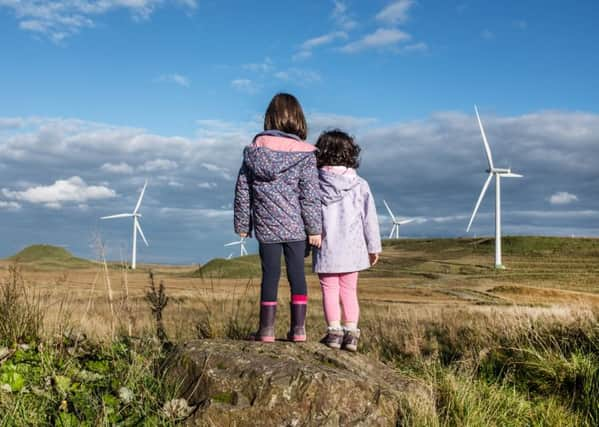Leader comment: We should all aim for more sustainable energy


Details of how Scotland’s greenhouse gas emissions will be cut by 66 per cent by 2032 were set out yesterday by climate change secretary Roseanna Cunningham.
They include a fully decarbonised electricity sector able to remove CO2 from the atmosphere with the use of technologies such as carbon capture and storage, with 80 per cent of domestic heat provided by low-carbon heat technologies.
Advertisement
Hide AdAdvertisement
Hide AdMeanwhile, the proportion of ultra-low emission new cars and vans registered in Scotland annually will reach at least 40 per cent, while 250,000 hectares of degraded peatlands will be restored and at least 15,000 hectares of woodland created each year.
Ministers committed last year to cut harmful CO2 emissions by 80 per cent by 2050, with a new interim target of 50 per cent by 2020.
The previous interim target of 42 per cent was hit six years ahead of schedule in 2014, although the independent Committee on Climate Change said the decrease was largely down to warmer winter weather reducing the demand for heating.
Cynics will question what difference all this will all make.
What’s the point of a small country in northern Europe adopting ambitious climate change targets when the engine room of the world’s economy, countries such as China and India, continue to build coal-fired power stations capable of belching out huge levels of emissions?
The answer, to borrow the SNP’s soundbite, is that Scotland can be a world leader.
Not only can we send a message about the importance of acting now to tackle climate change and be an example for others to follow, but we can also be at the forefront of developing the sort of new technologies which will allow emerging economies to leave fossil fuels behind once and for all.
There is no denying that renewables are the future. The potential of onshore wind has already been realised but Scotland has huge opportunities to develop tidal power and should continue to be at the forefront of the sector.
Advertisement
Hide AdAdvertisement
Hide AdAs laudable as it is to promote renewables, however, we are a long way off from a position where they can consistently meet 100 per cent of our energy needs.
Unless we want to become a country which relies on importing electricity from elsewhere, the time has come for Scotland to consider a new generation of nuclear power plants.
The proposal will be a contentious one but nuclear provides a form of clean energy easily capable of meeting demand at all times.
That way Scotland can continue to be a forefront of tackling climate change, while at the same time managing to keep the lights on long into the future.